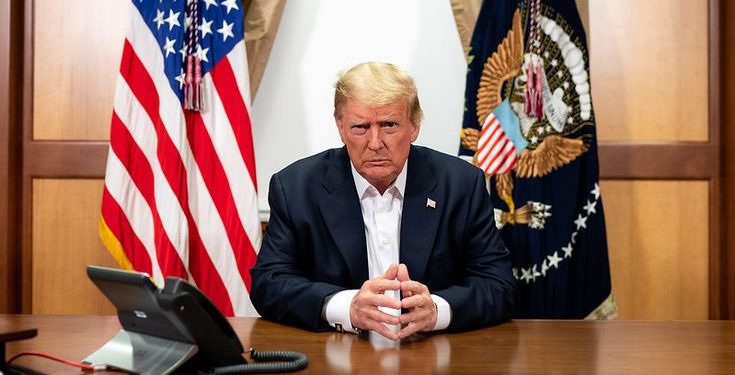Jakarta, Indonesia Sentinel — A new 10% base tariffs on nearly all imports goods entering the United States took effect Saturday (April 5), marking a dramatic shift in trade policy under President Donald Trump, who recently unveiled the sweeping measure targeting dozens of countries.
The newly announced economic plan includes reciprocal tariffs, a core feature of Trump’s push to protect American industries and reduce trade imbalances. While the 10% tariff applies to nearly all imports, exceptions have been made for Mexico and Canada, which are both part of the United States-Mexico-Canada Agreement (USMCA).
Countries not part of the USMCA are subject to higher tariffs, with some facing duties as steep as 25%. In a speech earlier this week, Trump described the announcement as a historic moment for the United States.
“This is our economic declaration of independence,” Trump said, as reported by CNN.
A total of 60 countries are subject to so-called “reciprocal tariffs,” where the U.S. matches or halves the rates those countries impose on American exports. Indonesia is among them. Currently, Indonesia imposes a 64% tariff on U.S. goods, prompting the U.S. to apply a 32% tariff in return.
The new tariffs have triggered concern in nations that rely heavily on access to the U.S. market. Indonesia’s Ministry of Foreign Affairs said it is assessing the potential economic impact on various sectors and preparing diplomatic responses.
“Indonesia has formulated several strategies to deal with President Trump’s reciprocal tariff policy and will engage in negotiations with the U.S. government,” the ministry said in a statement, as reported by CNN Indonesia.
Read Also:
Trump to End Temporary Legal Status for 530,000 Migrants in United States
Indonesian President Prabowo Subianto has also initiated high-level talks with leaders from other ASEAN member states to coordinate a regional response. He held virtual discussions with Malaysian Prime Minister Anwar Ibrahim, Brunei’s Sultan Hassanal Bolkiah, Philippine President Ferdinand Marcos Jr., and Singapore’s Prime Minister Lawrence Wong.
ASEAN economic ministers are expected to convene next week to continue discussions and explore potential strategies to address the impact of the U.S. tariffs.
According to Kumparan, under the new framework, Indonesia faces a 32% import tariff from the U.S., while other ASEAN countries are also affected: Malaysia and Brunei at 24%, the Philippines at 17%, Singapore at 10%, Cambodia at 49%, Laos at 48%, Vietnam at 46%, Myanmar at 44%, and Thailand at 36%.
The Trump administration argues the imports tariffs are necessary to level the playing field, but critics warn they could spark retaliation, disrupt global trade, and raise prices for American consumers.
(Raidi/Agung)


























